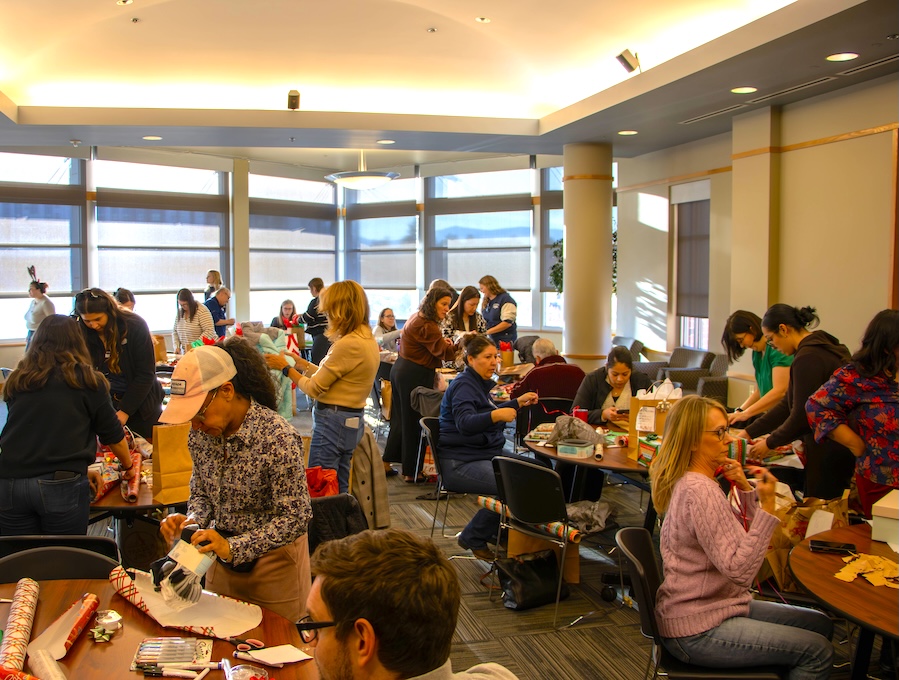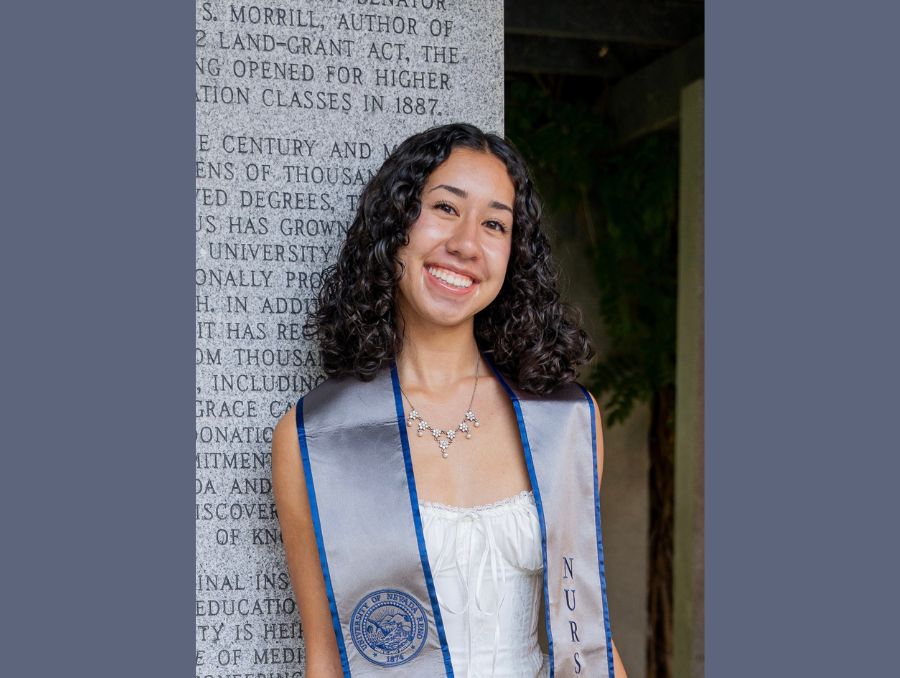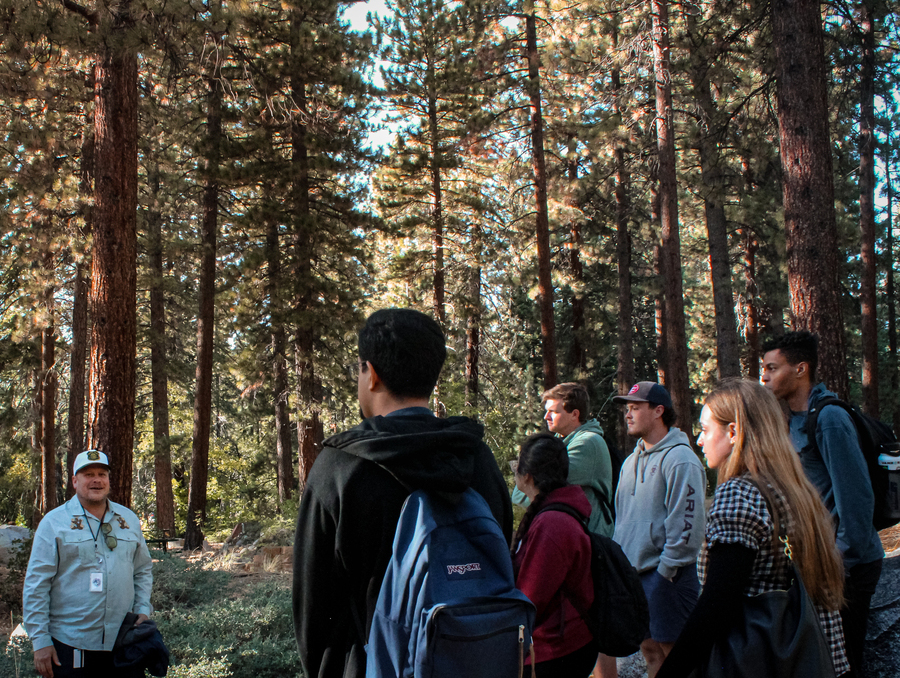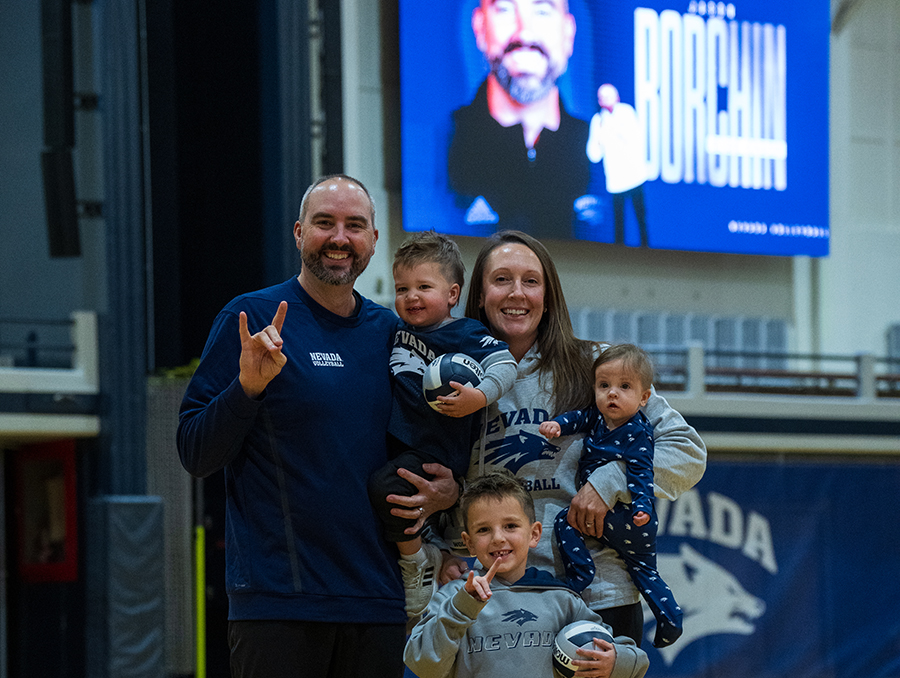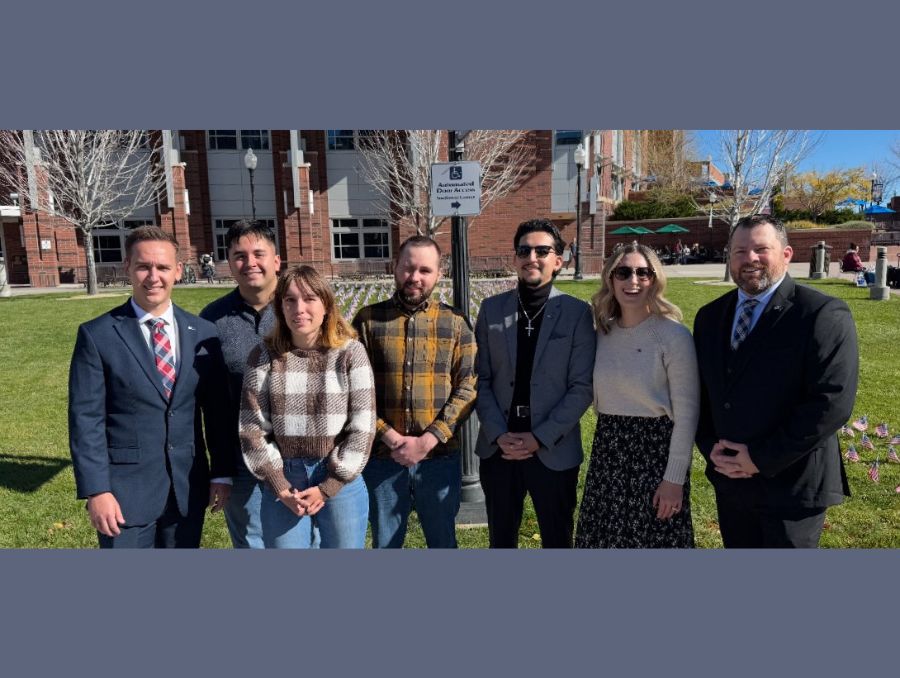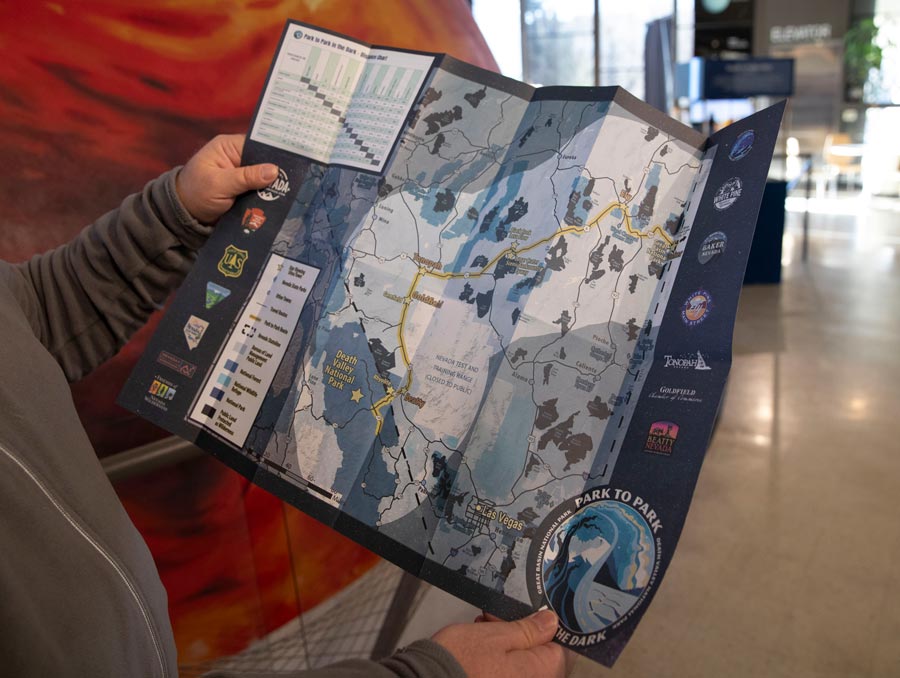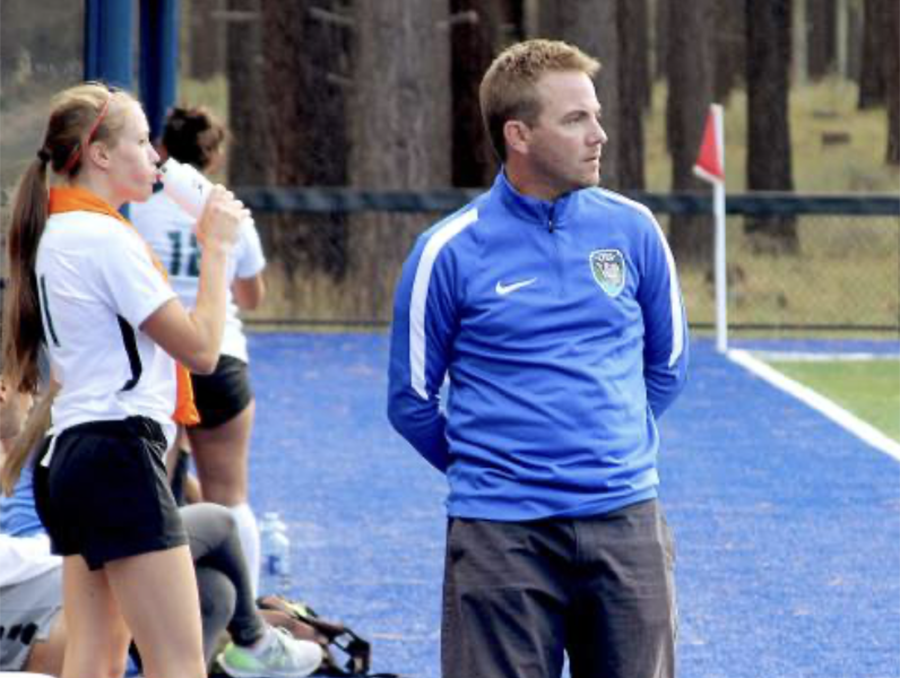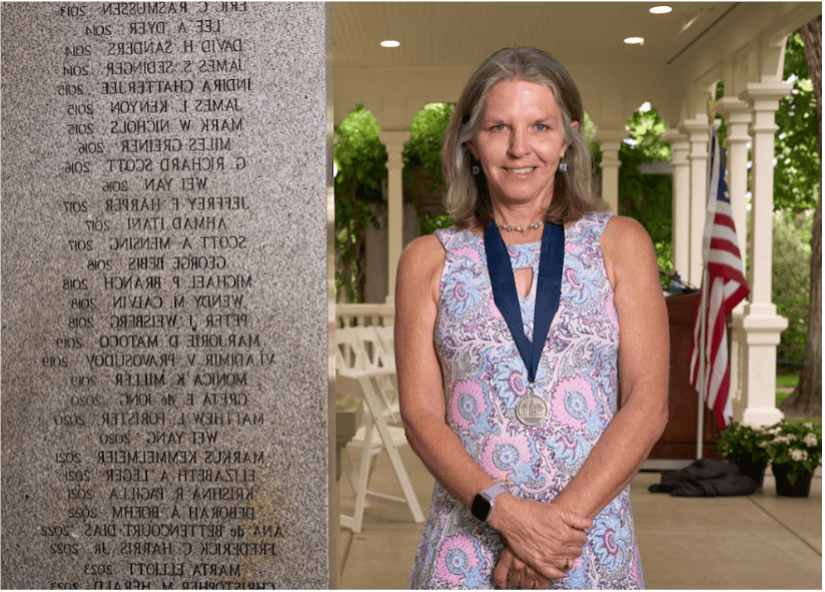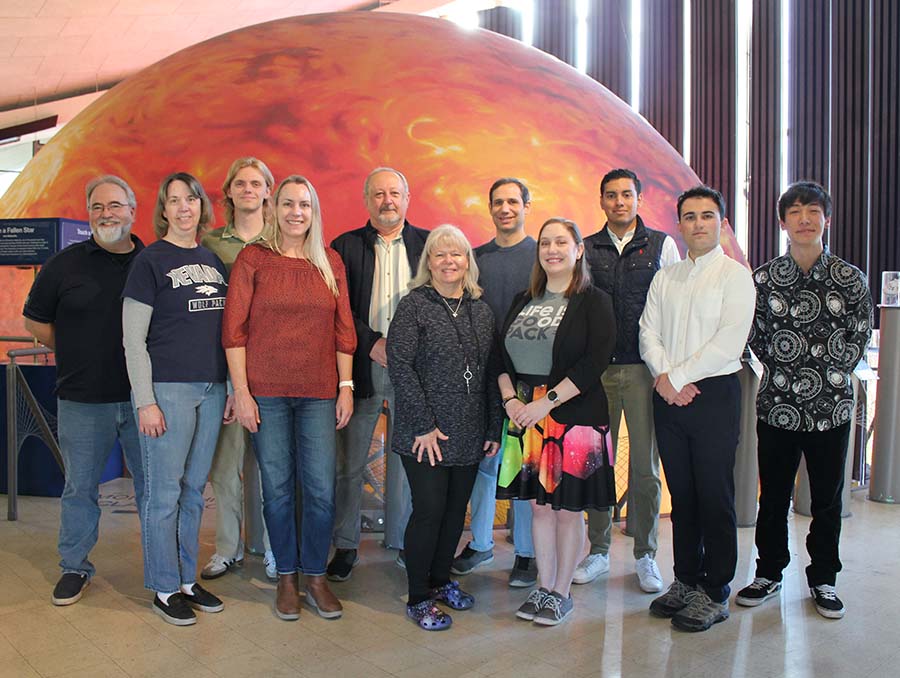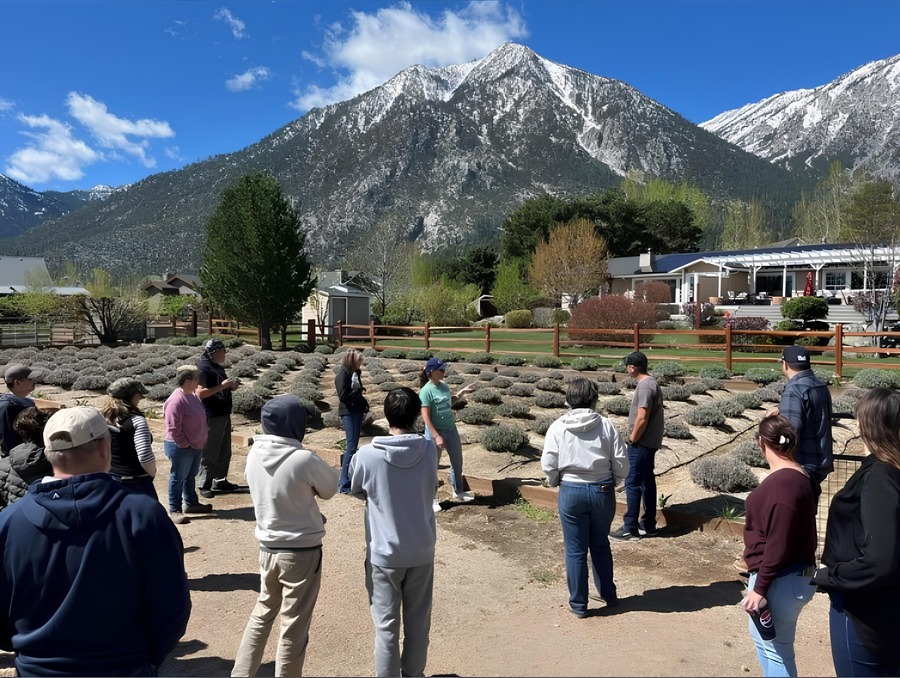Keynote address delivered by Mary White Stewart, University professor of sociology, at the New Student Ceremony at Lawlor Events Center Aug. 22, 2014:
"Good Morning Class of 2018 and welcome to the University of Nevada, Reno, one of the nation's top ranked research universities.
I want to dedicate this talk to Professor Alex Simirenko, who was my Sociology 101 professor in 1962 when I was an incoming student at UNR. He was a little wizened old man, (actually probably around 40 which was old to me then but young to me now). He was asthmatic, wheezing and coughing his way through lectures. I never knew if he would survive the hour, and sat on the edge of my seat, poised to deliver CPR or help hoist him into an ambulance if he keeled over. That's probably why I did so well in Sociology-I was very attentive. He wore a long dog fur brown overcoat and a ushanka, one of those Russian wooly caps, and he said things I thought were outrageous and just plain wrong.
I remember him saying to the women in the class that since we were in college we were not going to marry a truck driver or a ditch digger or the boy we left behind in the trailer park who was now pumping gas and selling potato chips at the local gas station--and I was offended-- forced to raise my hand and object - I would marry the man I fell in love with, love was based on feeling, on romance and desire-- it was personal and gripping and deep, not something you could predict based on the cold reality of education and social class .
But he insisted our lives and our choices were situated in, shaped by class, race and gender and he opened my eyes to things I had experienced, and continue to experience, but had never understood as part of a social structure...I had grown up with little, my parents scraping out an existence in reluctant soil and moving from one unwelcoming town to the next-- so I had experienced the hardships of class. My parents also had been actively involved in the civil rights movement of the late fifties and early sixties so I was very aware of discrimination and prejudice, and my future was intricately linked with expectations for me as a girl, (to get an education, but most importantly, to get married and have babies).
But I had never before moved beyond the personal to see myself as part of something larger, a society with its patterns and systems and structure. That came from my classes and reading and talking about ideas. I was fascinated and decided to major in sociology, eventually getting a Ph.D. in Social Psychology from UNR.
I was in college in the first place only because at that time the University of Nevada accepted any student who graduated from a Nevada high school, not because I had decent grades or good test scores. I was a poor student all through high school-perhaps because we moved every time my father thought he could find a better way to support his five children, but also because I was timid and terribly insecure. While my D- in Latin was my worst grade, the others were only slightly better.
My horizons were , understandably, low-our family took trips across country from Nevada to Missouri and Tennessee every summer to see our cousins and aunts and uncles and grandparents and we stopped in hotels along the way-I was amazed by the beautiful chandeliers, the white table cloths, the plush, ruby carpets, the fact that every bed had not just a bottom sheet but a top sheet and a pillow for every head-a separate towel for everyone in the family --I set my sites firmly on becoming a hotel maid.
But despite my hopes for a job in the hotel industry and my poor grades, in my family, the unquestioned assumption was that the only way out of where we were was through education. (In fact my entire family went to UNR: Both of my daughters graduated from UNR. My mother, after pretty much raising her five children, went back to the university to get her teaching certificate while I was still in college. She drove in every day from Fernley, even taking a class with me. She sometimes stayed overnight in my dorm, Manzanita Hall, when she had an early exam the next day. My father got his Bachelor's degree while I was in high school. He went to class at night after a full day of work, doing his homework along with his children, and then he went on to get an M.A. in agricultural economics while one of my brothers and I were still undergraduates here. My three brothers graduated from UNR and all became attorneys. Seven of my nieces and nephews have graduated from UNR. My sister dipped her toe in and then out again, but I stayed, having fallen in love with the freedom, the ideas and, of course, with Dr. Simirenko.
And here you all are-with different backgrounds, different hopes and dreams all at the University of Nevada, Reno with plans for degrees, preparing for careers or graduate school or medical or law school. The reason I told you about my own educational experiences was to encourage you to see these next four years ( we hope it is four) as a real opportunity: An opportunity to move beyond what you thought or knew or had in the past, to experience something new, to become really anything you want to be-what an opportunity-
An opportunity to have your ideas challenged-to hear things and to confront ideas that make you uncomfortable, that contradict what you believe. Education is not about stockpiling information-copying notes from a power point--education is learning to ask questions, to wonder about things, to be willing to not know all the answers, to understand that there are many ways to look at things, many perspectives, not one right way. Information is readily available on the internet-knowledge is not-knowledge comes from building layers of experience and thought, and entertaining new and uncomfortable ideas and then combining those in creative and integrative ways. One has to learn to be comfortable with uncertainty and to value questioning if one is to gain knowledge.
Employers will value you not just because you have information but because you have knowledge and because you have learned how to ask difficult questions, to critically analyze ideas, to integrate those with your own, and be able to communicate them effectively. You will, if you are willing and work hard, gain all of that during these next four years.
This is an opportunity to move way outside your comfort zone-to take chances-to meet new people, confront new ideas-to not be who you always were-or thought you were. If you were a wallflower in high school, or a mediocre student, here you can take a leadership role and become an academic star-don't let the past determine your future... You are in a new world, with new people who don't see you as your old friends or teachers or parents did- High school is a lot about fitting in, being one of something-here, instead, you can stand out, not fit in. Take chances to remake yourself-and if you loved who you were in high school, here you can pursue your goals, stay on the track you were on and succeed.
This is also an opportunity that you may never have again to appreciate diversity and difference. The University embraces diversity-not only in the ideas and discussion in the classroom but also in social activities-- Your participation in these not only allows for your own growth but enhances your resume and your classroom experience. This is an opportunity to interact with students and faculty from backgrounds very different from your own-whether it is national origin, gender identity, race,language, religious or cultural beliefs. Challenge yourself to move beyond the relative homogeneity of your high school and home town and appreciate difference.
Believe me, you will never in your entire life have an opportunity like you have here and now-time out basically-to study and learn and grow in an environment dedicated to your success. Take advantage of this time-use it well-get to know your fellow students, and talk to your professors-they have a wealth of knowledge to offer you, and they want you to talk to them-go see them, after class or during their office hours, let them know you're interested in what they are doing or saying-you can work with them on their research, in their labs, in the field... don't be shy- ask questions and reach out.
And take advantage of all the student services the University offers to help you succeed, soon to be housed in a beautiful new building now under construction. Our Knowledge Center is the envy of universities with far greater endowments than UNR. It is not only beautiful, but equipped with state of the art technology-you have access to any book, article or piece of information you could possibly want right at your fingertips-and you can have a cup of coffee while you're at it. Take advantage of this beautiful, comfortable environment to pursue knowledge and relationships-to get to know yourself and other people.
But remember, learning is also hard work. When they were in college, my daughters seemed to believe if they didn't understand something at first or easily it was just beyond their grasp-I think because I was such a terrible student early on, I knew that I had to work very hard to learn... that fared me well and it will you too. Being smart is nice but it only gets you so far-success is really built on hard work and commitment.
I asked my teaching assistant who just graduated from UNR what students should know coming into the University -she said "You're in charge now. " -no one is responsible for you except you-no one reminds you to get your papers in, tells you when to go to bed, it's up to you-whether you stay up until 11 p.m. or 3 a.m. the night before an 8 a.m. class is totally up to you.
And while we're speaking about responsibility-UNR joins campuses across the country in its concern about alcohol abuse and its consequences- including sexual assault. Drunkenness doesn't just blur the line between consent and rape, it obliterates that line with devastating consequences for both men and women. So, while I would encourage you to take all kinds of risks while you are here at the university, this is one risk you should avoid at all costs.
Another piece of advice that will fare you well comes from one of my nephews, who recently graduated from UNR and is now in law school. When I asked him what he thought incoming students should know-Drawing on some of his own unfortunate experiences, he said-Show up-they say that 95 percent of success is just showing up (and being on time figures in there too). But basically- go to class, stay engaged, don't remain on the margins.
And based on my own experiences-I would say let your education "rock your world"-open your mind to the new, allow your beliefs to be challenged, appreciate this brief moment in your life when you are not only allowed to, but are expected to grow and change . Don't hold back. Recognize how truly privileged you are, take advantage of the social and academic opportunities you will never have again. Get comfortable with "not knowing" and learn to appreciate the questions, not just the answers. Take risks, experiment, wonder, struggle and succeed. I wish you all the very best."

